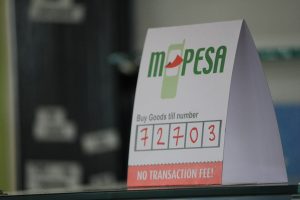 M-PESA (M for mobile, pesa is Swahili for money) is a mobile-phone based money transfer and microfinancing service, launched in 2007 by Safaricom, the country’s largest mobile network operator. M-PESA was originally designed as a way to allow microfinance-loan repayments to be made by phone. Doing this reduced costs, and made it possible for lower interest rates. During a pilot program, however, the company realized that it could work as a general money-transfer system.
M-PESA (M for mobile, pesa is Swahili for money) is a mobile-phone based money transfer and microfinancing service, launched in 2007 by Safaricom, the country’s largest mobile network operator. M-PESA was originally designed as a way to allow microfinance-loan repayments to be made by phone. Doing this reduced costs, and made it possible for lower interest rates. During a pilot program, however, the company realized that it could work as a general money-transfer system.
M-Pesa is now used by over 17 million Kenyans, equivalent to more than two-thirds of the adult population. In fact, around 25% of the country’s gross national product flows through it. But the system has also expanded. It is now being used in Afghanistan, South Africa, India and Eastern Europe.
How does M-PESA work?
First, a person creates an account. Then the user pays money into the system by bringing cash to one of Safaricom’s 40,000 agents. The agent credits the money to the user’s M-PESA account. The user withdraws money by visiting another agent, who checks that they have sufficient funds before debiting the account and handing over the cash. Users are charged a small fee for sending and withdrawing money using the service.
The user can also transfer money to others using a menu on your their mobile phone. Cash can thus be sent one place to another more quickly, safely and easily than taking bundles of money in person, or asking others to carry it for you. This is particularly useful in a country where many workers in cities send money back home to their families in rural villages. Electronic transfers save people time, freeing them to do other, more productive things instead.
M-Pesa has become the most successful mobile-phone based financial service in the developing world and has since been extended, offering loans and savings products. It can also be used to pay employees or pay bills, which saves users further time and money since they don’t need to waste hours standing in line at the bank.
It has also had an impact on salaries. One study found that in rural Kenyan households that adopted M-PESA, incomes increased by 5-30%. The success of the platform has also helped launch a host of start-ups in Nairobi.
The application is secure, even securing text messages sent to others. And it is lightly regulated.
People in developing countries may not have a lot of money, credit/debit cards, or cutting edge technology. But they do have mobile phones. M-Pesa has enabled the countries where it operates the ability to grow incomes, reduce crime, lower costs, and increase efficiency in payments. It’s also made it easier to send and receive money.
Could it work in a Western Culture, such as the US? I think it could, but unfortunately I think federal regulators and banks would fight to stop it’s implementation.
To read more, go here
PHOTO CREDIT: Wikipedia Commons




Art Rogers liked this on Facebook.